We live in a world of instant gratification: same-day Amazon Prime deliveries, groceries on our doorstep at the click of a button, and any information we’d like to know at the tip of our fingers. We can do what we want when we want, and when we decide to get pregnant, we want to get pregnant fast!

Table of Contents
Couples Are Waiting Longer to Get Pregnant
For healthy, young individuals, doctors say that most couples conceive within six months to one year of trying; of course, many don’t want to wait that long.
However, many young people aren’t ready to start families. It is increasingly common for couples to delay pregnancy while developing their careers, traveling, or growing a tidy nest egg. Some couples decide not to have kids at all, only to change their minds once they are in their late thirties and not as fertile as they once were.
Combine frequently delayed start of trying to conceive with the global decline in sperm counts due to environmental toxins, and you’ve got a large portion of the population trying to conceive and wondering why they aren’t getting pregnant fast.
Additionally, the World Health Organization reports that 1 in 6 people globally are affected by infertility. Those struggling to get pregnant may feel even more stress to get pregnant fast after years of trying to conceive.
The good news is that there are many evidence-based ways to increase your fertility and get pregnant fast, or at least faster.
I’m Anna, and I actually did 79 Things to Get Pregnant After Infertility & Miscarriage, but start with these 20 Evidence-Based Tips to Get Pregnant Fast!
I Want to Get Pregnant Fast!
There are many science-backed ways to improve your reproductive health to get pregnant fast. Visiting your doctor, tracking ovulation to pinpoint your fertile window, following a fertility diet, doing acupuncture, considering fertility supplements, mind-body work, and swapping out traditional products for non-toxic alternatives are all research-backed ways to conceive faster.
There are also many alternative fertility practices that couples turn to, not all of which have been researched, such as fertility prayers, fertility smoothies, fertility massages, and many more.
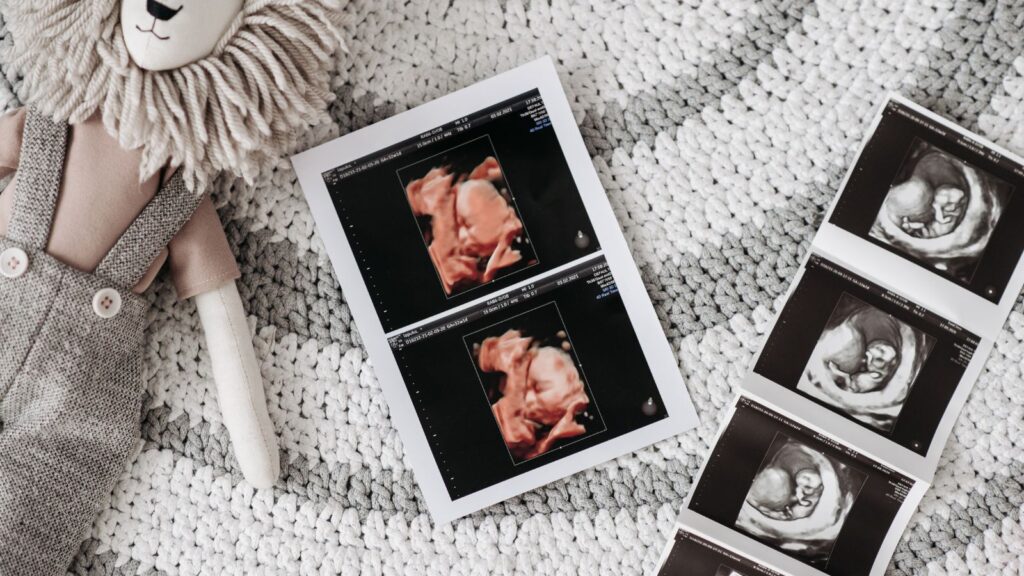
How Can I Increase My Chances of Getting Pregnant Fast?
1. Visit Your Doctor
Schedule an appointment with your doctor for professional advice on which areas of your life need some fine-tuning to get pregnant fast. Your healthcare provider will be able to take a look at the medications that you’re on, talk to you about your menstrual cycle, check your hormone levels, and assess your general health to give you a personalized action plan.
Learning more about your body’s unique needs will give you a major boost to get pregnant fast.
If you haven’t gotten pregnant within one year of unprotected sex, it is time to see a fertility specialist for more health information.
2. Track Ovulation to Pinpoint Your Fertile Window
Understanding your fertility window plays a major role in getting pregnant. Tracking ovulation provides insight into which days you are most fertile and when your chances of conception are at their highest.
Fertility monitors and ovulation tests are beneficial in making sure that you’re not missing your most fertile days. Common types of fertility monitors are basal body thermometers, wearable monitors, vaginal monitors, ovulation prediction kits, and urine-testing monitors.
These fertility monitors track different factors like basal body temperature, cervical mucus, and hormone levels to indicate your ovulation patterns. You can also use a simple ovulation calculator app which will identify the best five days to conceive within each month. However, this will be based on averages without the hormone or temperature input.
If the logistics of tracking ovulation or taking your basal body temperature are too stressful, having sex every day, or every two days, is an easy way to maximize your chance of conception and ensure that you aren’t missing your fertile window.
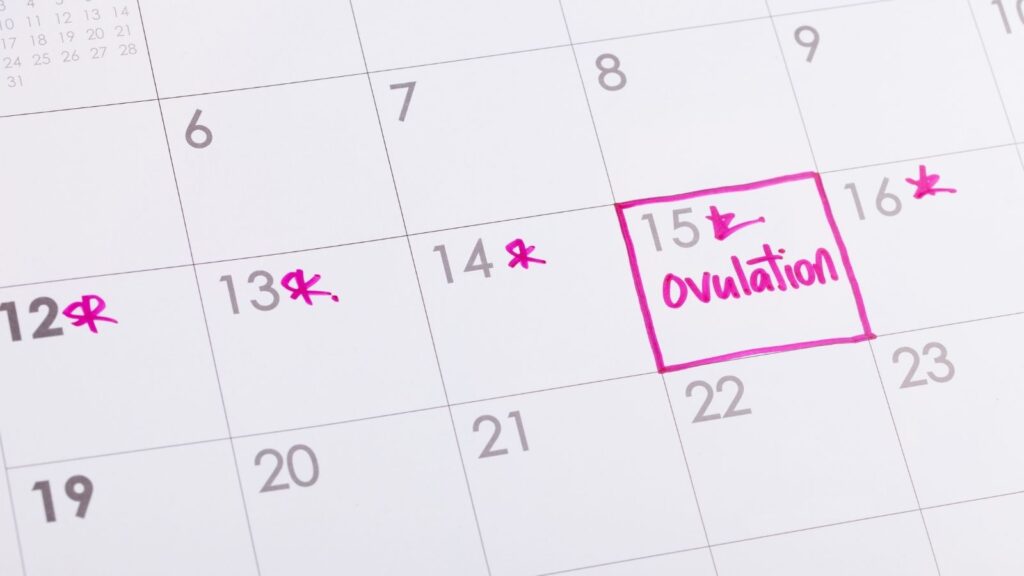
3. Follow an Evidence-Based Fertility Diet
What can I eat to be more fertile?
Following a fertility diet is a fantastic way to increase fertility and eliminate unhealthy ingredients. (I have a whole free e-book on how to tailor the fertility diet to your diagnosis!) Eating the best foods for conception has many other health benefits – your energy will improve, you’ll save money, and you’ll become much healthier overall. You’d be surprised how much food in our grocery stores contains toxins that threaten your fertility and general health!
Several studies have helped narrow down what an “optimal fertility diet” might look like. The Harvard Nurses Study looked at diet and fertility over several years and cohorts, and there have been several smaller studies since. The fertility diet suggested by researchers is an evidence-based way to get pregnant faster. Basically, follow a Mediterranean diet, but to an extreme.
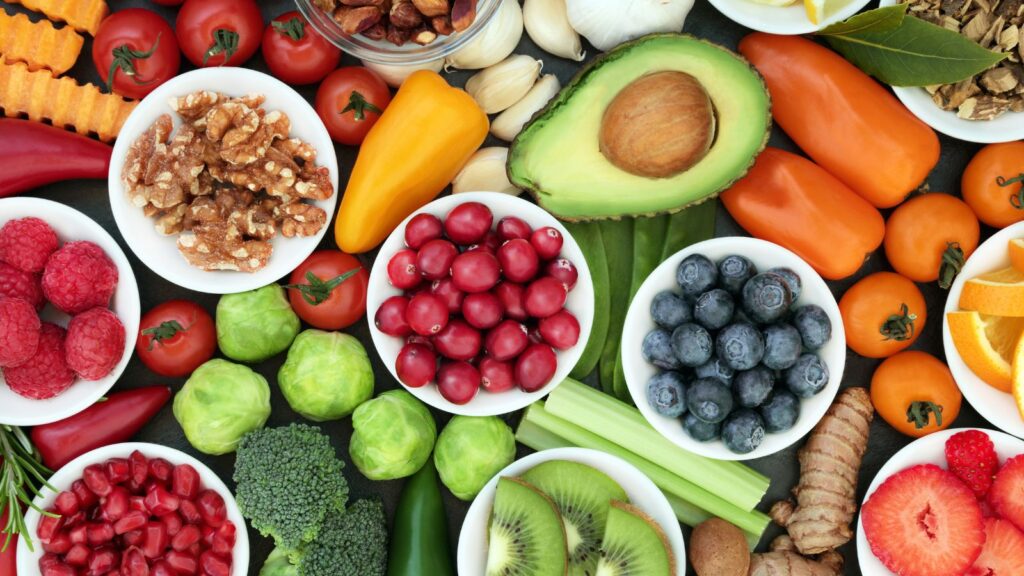
Fertility Diet to Get Pregnant Fast
Eliminate or drastically reduce trans fats, sugar, sweeteners, processed food, take-out food, caffeine, refined/white carbohydrates (pasta, white bread, white rice), red meat, and alcohol.
Eat plenty of green vegetables, vegetables, lentils, beans, nuts, seeds, lean meat (chicken, turkey), fish, fruit (aim to keep sugar levels low- stick with fruits like berries rather than bananas), eggs, whole grains, seaweed, and healthy fats.
The most important food for fertility is probably leafy greens, which increase the chance of pregnancy by creating a healthy sperm-friendly alkaline environment. They provide vital minerals, antioxidants, and vitamins needed to grow healthy eggs and sustain a successful pregnancy.
Leafy greens include vegetables such as romaine, kale, spinach, collards, watercress, arugula, cabbage, beet greens, chards, and dandelion greens.
What can I drink to be more fertile?
You can make many drinks by combining superfoods to increase your fertility. Fertility smoothies are an excellent way to get in the greens and superfoods that can help improve your hormone health.
Fertility smoothies are also a way to sneak in more foods that will help you get pregnant fast, even when it’s hard to include them in meals. I also have recipes for a fertility herbal infusion and a fertility lemon drink.
4. Eat More Protein
Are There Recommended Macros for Fertility?
Eat more protein to get pregnant fast! In 2012, researchers found dramatically improved fertility rates when women altered their diet to include a macronutrient ratio of at least 30% protein and less than 40% carbohydrates.
In fact, at just 25% protein consumption, researchers saw a vast improvement in egg quality and embryo development. Women who reached 30-35% protein intake had four times the pregnancy success rates of those who consumed more carbohydrates and less protein.
Ready my post where I dive deep into how to optimize your macros for fertility!
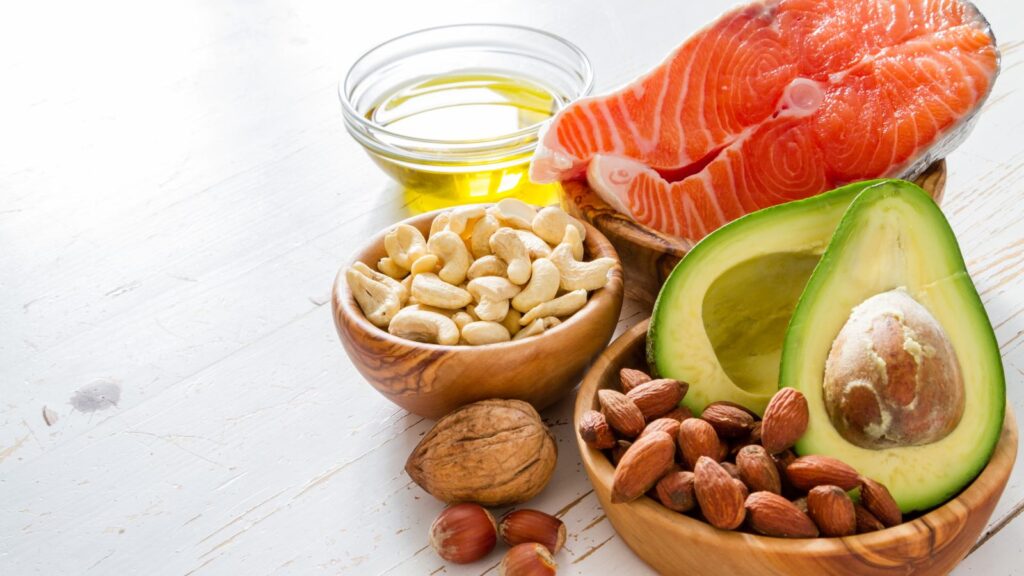
5. Incorporate More Healthy Fats
Adding more healthy fats to your diet can improve your chances of getting pregnant and support an overall healthy diet. Polyunsaturated fats are extremely beneficial for fertility. Women who consistently eat foods with omega-6, linoleic acid, and omega-3 are much more likely to become pregnant.
Fertility foods to eat include avocados, extra virgin olive oil, nuts, seeds, and low-mercury fatty fish.
6. Eat More Fish
Consuming more seafood is associated with a lower time to conception for both men and women. Eat at least two to three servings of low-mercury fish per week to get more marine long-chain omega-3 fatty acids in your diet. Make sure not to overdo the seafood to avoid overexposure to mercury.
7. Limit Alcohol
Reducing your alcohol intake can increase your chances of getting pregnant. In addition to the general health complications of frequent alcohol consumption, it’s linked to lower fertility. It’s also great practice for when you get pregnant and can’t consume any alcohol at all!
8. Cut Down On Caffeine
Reducing or eliminating your caffeine intake (as difficult as it may be!) can increase your chances of getting pregnant. Studies have shown that high levels of caffeine consumption can delay conception for fertile women.
If your daily routine involves a ton of caffeine, try to cut back as much as possible. I ditched caffeine completely in 2014 and haven’t gone back! It can be life changing (in a good way, lol) honestly.
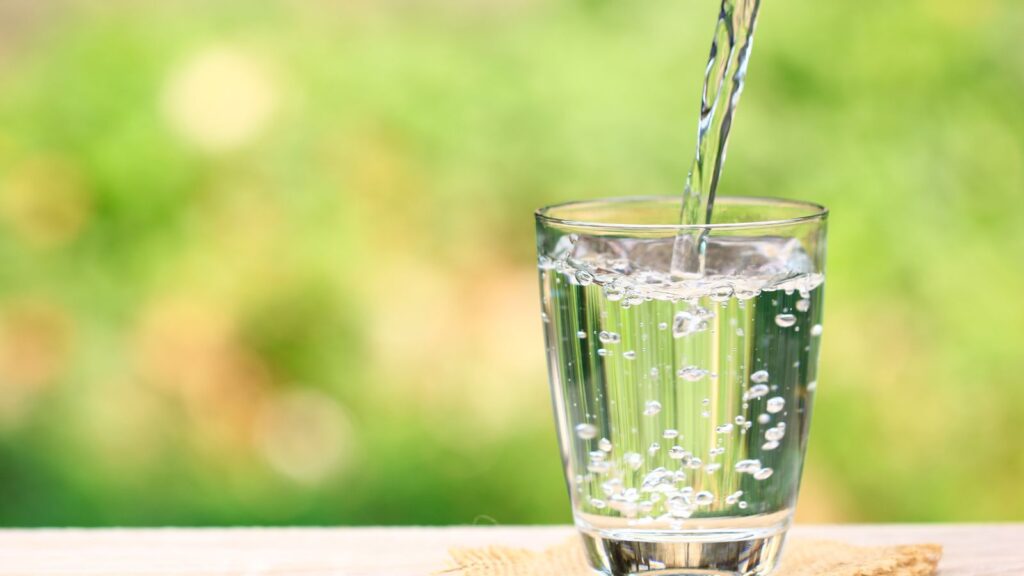
9. Drink More Water
Staying hydrated is a great way to support your overall health and increase your fertility. We’re made of mostly water, so it makes sense that we need to drink more of it!
Besides the general health benefits of staying hydrated, drinking more water helps to thin the cervical mucus lining, making it easier for a pregnancy to occur. Staying hydrated also helps keep your hormones balanced and promotes a healthy environment for a pregnancy to occur.
10. Try Acupuncture for Fertility
Research shows that acupuncture is a way to improve both male and female fertility. Not only has it been practiced as a fertility treatment for centuries to aid in conception, but it is also believed to help prevent miscarriages.
Acupuncture can be beneficial for various fertility disorders, such as spasmed tubes, PCOS, hyperprolactinemia, or hormonal imbalances. Make sure to choose a licensed acupuncturist specializing in treating fertility disorders for the best results. I find that Traditional Chinese Medicine acupuncture is often the best approach for trying to conceive.
11. Go Nontoxic
In today’s world (especially in America), we’re surrounded by more toxins than you may think. BPA, phthalates, parabens, PFAs, pesticides, and triclosan are all endocrine disruptors that may make it much harder for you to get pregnant fast.
Endocrine disruptors mimic and disrupt your hormones and are linked with fertility and reproductive issues, miscarriages, pregnancy complications, diminished ovarian reserve, delayed conception, and cancer.
These toxins can be found in our furniture, perfume, makeup, household cleaning products, and even our food!
Kick these chemicals out of your life for your reproductive (and general) health. Switching to non-toxic toiletries and household products can help protect you, your spouse, and your future offspring from the effects of endocrine disruptors. Ditching Phthalates & BPA is the most important, be sure to start there!
Check out all my posts on going non-toxic and my shopping guides:
- Non-Toxic Shopping List
- Non-Toxic Skincare
- Non-Toxic Makeup
- Non-Toxic Lipstick
- Non-Toxic Perfume
- Non-Toxic Hair Products
- Non-Toxic Deodorant
- Non-Toxic Sunscreen
- Non-Toxic Hair Dye
- Non-Toxic Mattresses
- Air Filters for TTC & Pregnancy

12. Ditch Birth Control Ahead of Time
When taking hormonal birth control, your body may need time to adjust before getting pregnant. For most forms of birth control, like pills, IUDs, and patches, it typically takes one to three months to return to your regular cycle. For injectable birth control, it can take up to ten months or longer for many women’s periods and ovulations to return to normal.
If you plan on getting pregnant soon and are on birth control, consider how much time you should allow your hormones to regulate before trying to conceive.
13. Have a Healthy BMI
Although everybody is different and Body Mass Index (BMI) can vary by height, a BMI between 18.5 and 24.9 is typically ideal if you’re hoping to get pregnant fast.
Being overweight can lead to hormonal imbalances, menstrual disorders, and problems with ovulation. Additionally, being underweight can cause complications in fertility through hormonal imbalances.
A healthy weight will reduce the risks of these issues and support a healthy pregnancy. Talk with your doctor about ways to get to a healthy BMI.
The good news is that the Fertility Diet with the right Macros is a great place to start for losing weight. Talk to your doctor!

14. Get More Sleep
Sleep is vital for your overall health – and fertility! Research shows that women who sleep less than seven hours per night are 15% less likely to get pregnant. Make sure that you are well-rested for optimal health and fertility. Your body will thank you!
15. Exercise Regularly
Regular exercise releases endorphins, reduces stress, and supports overall long-term health. A moderate exercise regime is associated with improved fertility and can help reduce the time to conception. Get in regular movement to become more fertile! But don’t overdo the exercise!

16. Quit Smoking
Ditch cigarettes to improve your chances of getting pregnant. There is evidence to support that smoking cigarettes results in reduced fertility. Quit this habit if you’re trying to conceive to improve your fertility and general health.
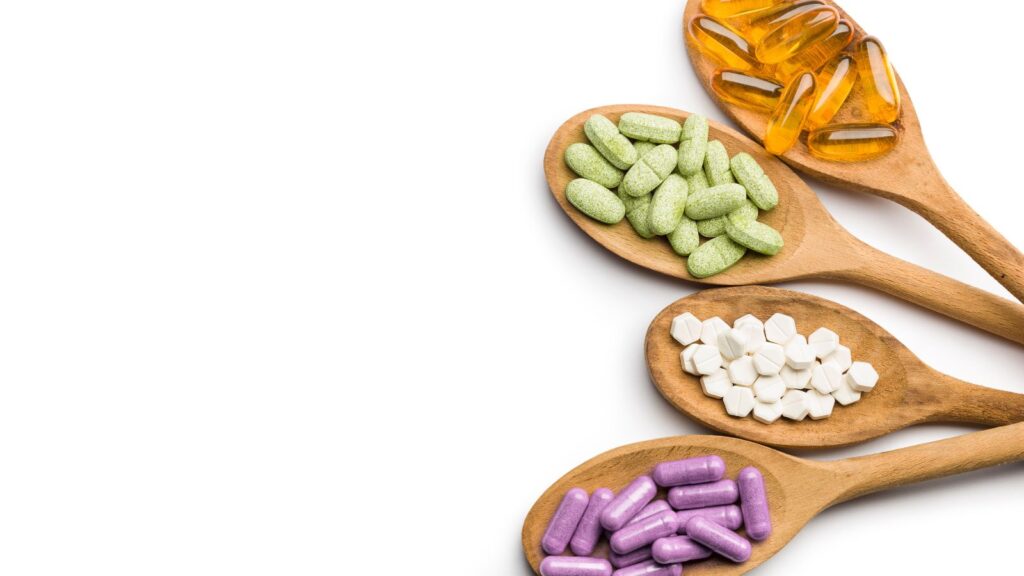
17. Incorporate Supplements
Always consult your doctor before taking supplements to increase fertility, and don’t go overboard. The best way to achieve optimal health and get pregnant fast is by nourishing your body through your diet and superfoods.
Wheatgrass, spirulina, and leafy greens are all great foods to supplement your diet and improve your health and fertility (put them in that fertility smoothie!). Herbs like red raspberry leaf, nettles, and oat straw can also boost fertility. (P.S. Eating for fertility doesn’t need to break the bank. There are lots of ways to save money on organic food and supplements to stay within your budget!)
Which vitamins should I be taking to increase fertility?
Vitamins are a great way to supplement your diet (in moderation). Prenatal, probiotics, omega-3 fatty acids, calcium, vitamin D, and magnesium can all benefit your hormone (and overall) health. Prenatal vitamins, specifically, are a great way to help prevent low nutrient levels.
Taking daily prenatal vitamins supports a healthy pregnancy, and studies conducted have also shown less time to conception and increased rates of pregnancy! Always do your own research before incorporating supplements of any kind into your routine!
Shopping Guides:
- Best Prenatal Vitamins for Trying to Conceive
- Best Male Fertility Supplements
- Best CoQ10 For Fertility
- Best Probiotics For Fertility
- My Favorite Female Fertility Supplements
18. Folic Acid
Folic acid is an important supplement to take during pregnancy to help prevent birth defects. However, there’s evidence to back up that it can also aid in fertility.
A study found that supplementing with folic acid was associated with 3.3 times increased chance of pregnancy in women. But it’s not just in female fertility – there are also links with increased male fertility. A study found that among men who had been taking folic acid, there was a 74% increase in the average amount of sperm in their semen.
Always consult your doctor before taking supplements to find the proper dosage levels. Also, if you have an MTHFR gene mutation, consider a methyl folate alternative to synthetic folic acid.
19. Stay in Bed Right After Sex
How Long Does Sperm Need to Stay Inside to Get Pregnant?
Sperm can reach the egg as quickly as 15 minutes after sex. However, sperm can live for up to 5 days in the reproductive tract. To maximize your chances of conception and get pregnant fast, wait for at least 15 minutes after sex lying down. A study by the British Medical Journal showed that women who laid on their backs for 15 minutes had a 27% chance of pregnancy after three tries, versus women who immediately got up had an 18% chance.

20. Mind-Body Work
Mind-body healing work can be life-changing if you’re struggling with infertility. The stress and frustration of infertility can be crippling, and mind-body work can help you keep that stress at bay.
A study conducted by a private fertility center concluded that mind-body work is associated with an increased chance of pregnancy. Mind-body work prepares your mind and spirit for pregnancy, opening up any emotional blocks that may be in your way. There are many ways to incorporate mind-body work, including yoga, meditation, prayer, Mayan abdominal massages, self-care, journaling, gratitude, and visualization.

How to Get Pregnant Fast With Hormone Issues?
Getting pregnant is still possible if you struggle with hormone issues like irregular periods or PCOS! Tracking your hormones and ovulation using fertility monitors is a great way to gain insight into your cycles. Especially if your periods are irregular, tracking ovulation without a fertility monitor can be difficult. Fertility monitors that provide information about your hormone levels, like your Luteinizing Hormones, can help you understand when you ovulate to maximize your chances of conception.
Having sex every day can also significantly increase your chances of conception to ensure you aren’t missing your fertile window. Be sure to consult with a fertility specialist or reproductive endocrinologist for tailored assistance.
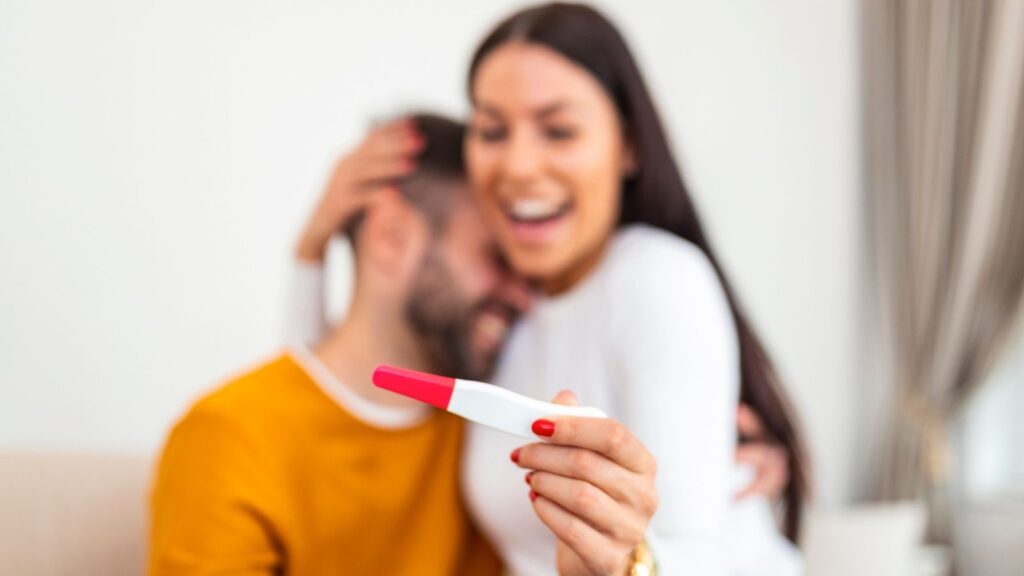
Will I Get Pregnant Faster the Second Time?
Every pregnancy is different! Whether you had difficulty conceiving your first child or got pregnant easily, your other pregnancies aren’t guaranteed to be easier or more difficult. The best thing you can do for your fertility is adapt to a hormone-friendly lifestyle.
However, not everyone is physically able to get pregnant fast. If you’re struggling with infertility, you’re not alone. Consult a doctor or specialist to get advice tailored to you if you’ve been trying to conceive for a year or longer.
Hopefully, these tips have been helpful in understanding different ways to increase your fertility. These evidence-based tips to increase chances of conception are a great starting point to get pregnant fast!
Want to get pregnant fast?
Love lists? Me too. Grab my 79 Things I did to transform my life and get pregnant in less than 3 months after 2 years of infertility and miscarriages! Totally free!
Anna Rapp is a fertility journalist and non-toxic living expert. When Anna Rapp was struggling with infertility and recurrent early miscarriage, she was diagnosed with diminished ovarian reserve, High FSH, low AMH, low follicle count, endometriosis, and an MTHFR mutation. Despite being told donor eggs were her only solution, Anna used her graduate training in research methods and analysis to read everything she could find on fertility and egg health. Ultimately, she lowered her FSH and got pregnant naturally (twice). She blogs about how she did it and encourages her readers to take charge of their fertility journey and get happy, healthy, and pregnant!


Leave a Reply